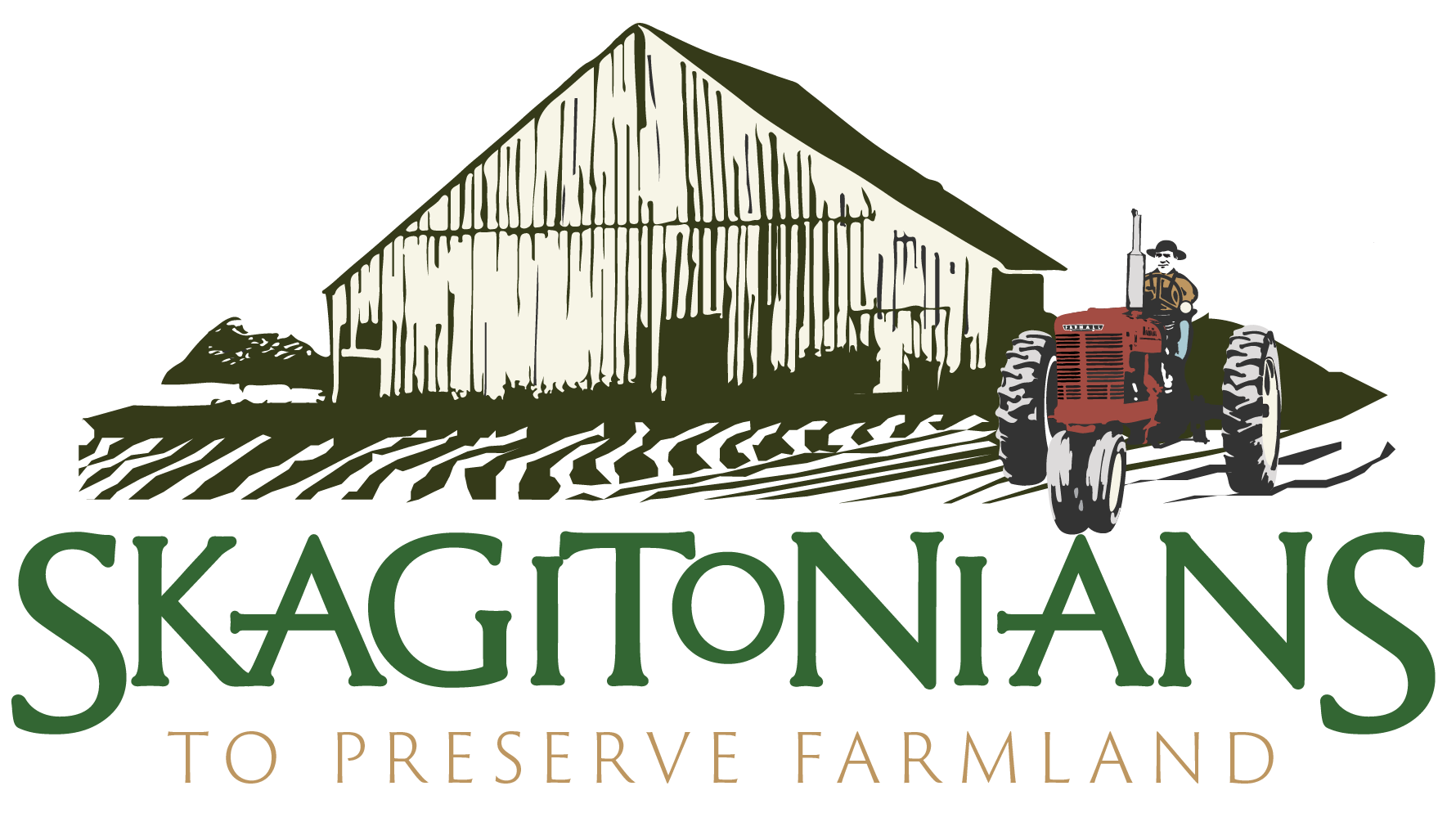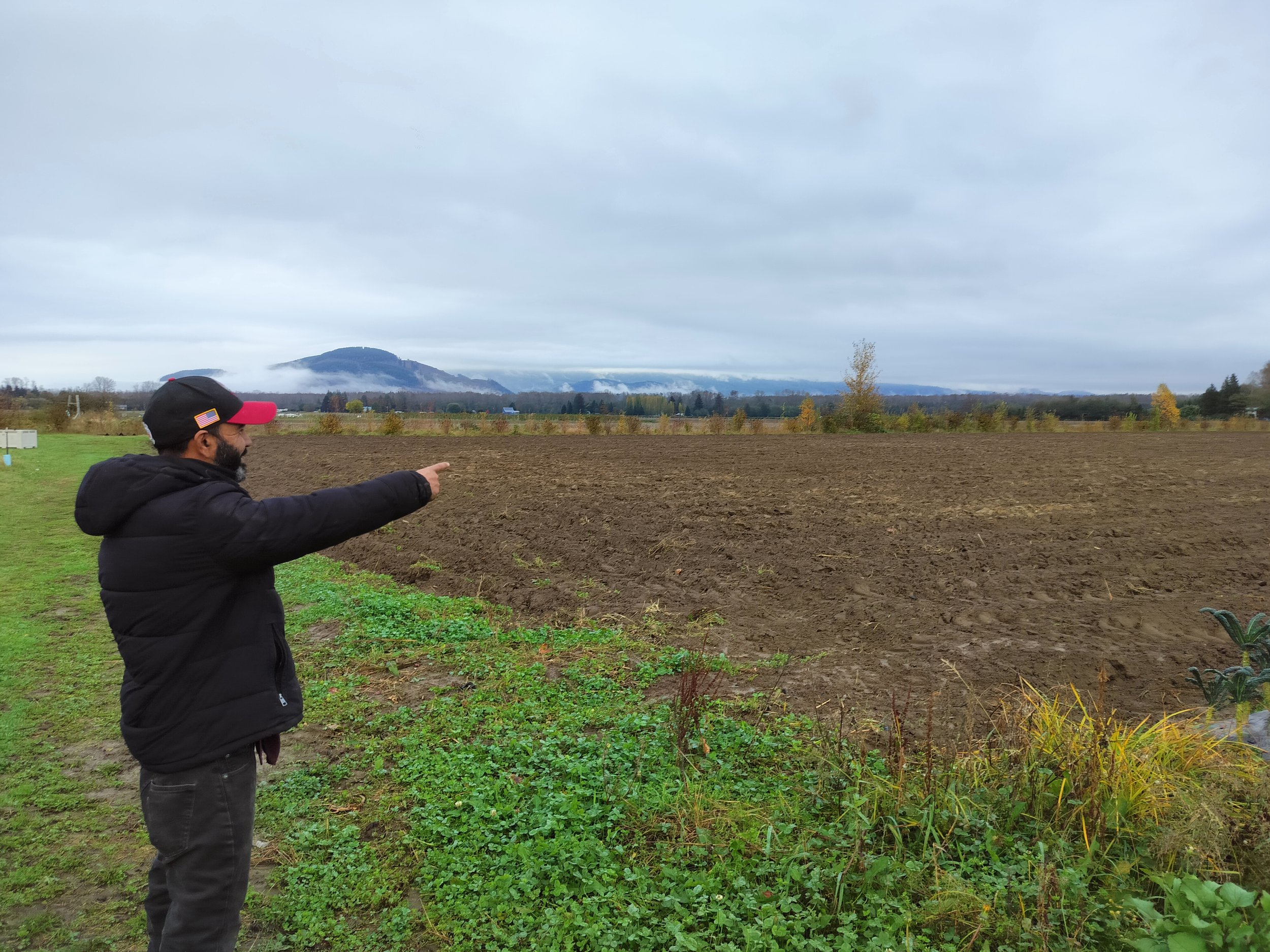Farias Farm: A Long Apprenticeship
People come to farming from many backgrounds, but Francisco Farias just might be the only Skagit County farmer who was once a dee jay.
The former host of “Bandiando al fin de semana” (“playing music on the weekend”) on KSVR, Skagit Valley College’s bilingual radio station, thrived as he engaged with listeners. “People would call in from the fields with requests,” he says. “I loved it, but I didn’t do it for money.”
By day, Farias had a job at Dykstra Farms in Burlington, working its dairy and organic vegetable operation with Andrew Dykstra and his late father Douwe. By night, he was polishing his English and working on his GED at the college. At KSVR, which broadcasts news and music in Spanish in the morning, he met Alex Perez of Northwest Agricultural Business Center. Perez suggested he sign up for Viva Farm’s practicum in farming.
Farias already knew most aspects of farming inside out. Between Dykstra Farms and his father’s farm in Mexico, where he raised beef cows and corn for tortillas, he had 30 years of experience under his belt.
Planting, cultivating and growing crops? Check.
Keeping animals healthy and productive? Check.
Creating business plans, analyzing profitability, and keeping books? Not so much. Through Viva’s farm incubator program, which offers bilingual training in farming practices and access to land, infrastructure, and equipment, he could fill in the few gaps of his very long agricultural apprenticeship.
He left the radio station and started the year-long evening course. His half-acre plot at Viva became four acres and then seven, at Viva and on rented land in Burlington. His brother Juan, who was also taking the practicum, joined him. A third brother pitched in as needed.
All that acreage meant Farias had to leave the Dykstras. “It’s hard to train a new person,” says Andrew Dykstra, “but it’s exciting when a good person can learn something, start a farm, and move up the food chain.”
Farias kept on learning as he farmed, taking courses in business, organic practices, “everything,” he said. Mastering organic berries was a priority. This excellent crop grows beautifully in Skagit County and commands high prices—but Farias had never grown them before. Now, in June and July, he sells 200 flats of strawberries a week at farmer’s markets—and 8000 flats a season wholesale. “Strawberries go out the door!” he says.
Today Farias Farm cultivates almost 18 acres, on Viva property and in Burlington. He bought out his brothers and formed a new partnership with his wife Lorena, who keeps the books, handles email, and sometimes helps in the field. The two oldest of their four children lend a hand at farmer’s markets. Six full-time seasonal workers also power the farm.
Acreage that will be blueberries
The best part of this success story is that Farias is on a path to owning his own land and buildings—a big challenge for newer farmers in a county where small pieces of farmland are scarce and land with a house and outbuildings can be pricey. In 2021, the Farias’ Burlington landlords told the couple they wanted to sell their 12-acre farm and farmstead, and hoped that Francisco and Lorena would buy it.
Of course, the Fariases wanted to—but like most newer farmers, they had more energy, experience, and plans than cash in the bank.
Anna Chotzen, Viva’s Director of Farm Viability, stepped in. She helped the couple prepare financial statements and run projections to see what a purchase would take. Then she connected them to an impact investment company that buys properties from the sellers while offering buyers a 10-year lease with a purchase option. They also “use a holistic evaluation process that considers non-financial factors in determining the interest rate,” says Chotzen. “Right now, Francisco is not accumulating any equity, but he can purchase at any point during those 10 years for the original price, plus the accrued interest. That gives him more time to arrange financing.”
Farias expects to be able to purchase the land in the next three years, using his own savings and a conventional loan. Until then, he can invest in infrastructure with confidence. “I want to change things a little bit, because we are making plans to live here a long time,” he says.
They have improved the soil with organic compost from the Dykstra farm and added high tunnels to protect tomatoes from rain and cold. Hoop houses are being cleaned up for lettuce and other tender greens. Three acres are being prepped for blueberries. A farm stand is on the drawing board.
So is a berry washing station in or near the barn.
And they are taking their first steps into the local farming community. The Farias family has had the neighbors and the former owners over, because they are so proud and excited about their new home and farm.
“It’s hard to believe we live here now,” says Lorena. “It feels a little unreal.”
“I have a barn!” says Francisco. “That’s why I’m so happy!”
Francisco’s barn
Story by Anne Basye: info@skagitonians.org







